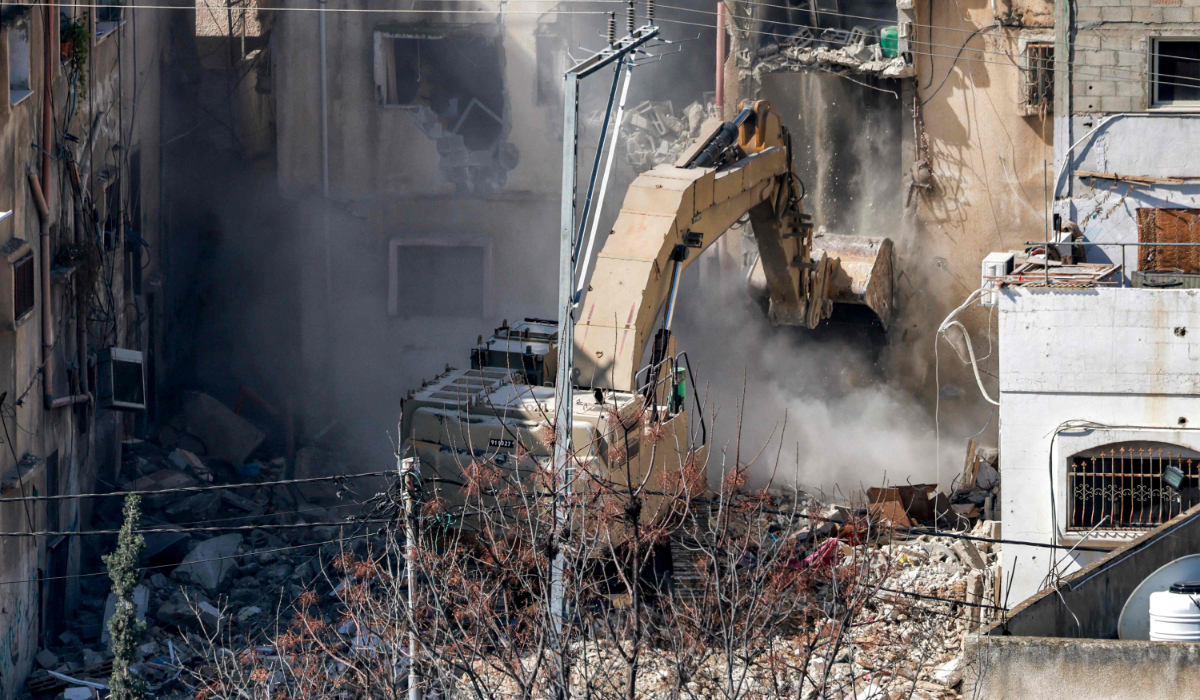The war between Israel and Hamas in Gaza entered its 12th month Saturday with little sign of respite for the Palestinian territory or hope for Israeli hostages still held there.
The chances of a truce that would swap Palestinian prisoners jailed by Israel for hostages held by Hamas appeared slim, with both sides sticking doggedly to their positions.
The United States, Qatar and Egypt have all been mediating in an effort to bring about a ceasefire in the war, which authorities in Gaza say has killed at least 40,939 people.
According to the United Nations human rights office, most of the dead are women and children.
Of the 251 hostages seized by Palestinian militants during the attack, 97 remain in Gaza, including 33 the Israeli military says are dead.
Scores were released during a one-week truce in November.
Israel’s announcement last Sunday that the bodies of six hostages including a US-Israeli citizen had been recovered shortly after being killed sparked grief and anger in Israel.
Thousands of demonstrators rallied on Saturday evening in Tel Aviv and other Israeli cities, demanding the government secure the release of hostages.
They carried banners that read “The blood is on your hands” and “Who’s next.”
International pressure to end the war was further underlined by Friday’s fatal shooting in the occupied West Bank of Turkish-American activist Aysenur Ezgi Eygi, who was demonstrating against Israeli settlements in the territory.
Eygi’s family demanded an independent investigation into her death, saying her life “was taken needlessly, unlawfully, and violently by the Israeli military.”
The UN rights office said Israeli forces killed Eygi, 26, with a “shot in the head.”
Turkiye said she was killed by “Israeli occupation soldiers,” while the United States called her death “tragic” and pressed Israel to investigate.
Turkish President Recep Tayyip Erdogan denounced Israel as a “barbaric” state and urged Muslim nations to forge an “alliance” against Israel, saying: “It is an Islamic duty for us to stand against Israel’s state terror. It is a religious duty.”
Israeli Foreign Minister Israel Katz responded by saying that Erdogan “continues to throw the Turkish people into the fire of hatred and violence for the sake of his Hamas friends.”
Around 490,000 people live in Israeli settlements — illegal under international law — in the West Bank, which Israel occupied in 1967.
Since Hamas’s October 7 attack, Israeli troops or settlers have killed more than 690 Palestinians in the West Bank, according to the Palestinian health ministry.
Israel says at least 23 Israelis, including members of the security forces, were killed during the same period in Palestinian attacks.
Eygi’s killing came on the day Israeli forces withdrew from a deadly 10-day raid in the West Bank city of Jenin, where AFP journalists reported residents returning home to widespread destruction.
The pullout came with Israel at loggerheads with the United States over talks to forge a truce in the Gaza war.
US Secretary of State Antony Blinken has said “90 percent is agreed” and urged Israel and Hamas to finalize a deal. Netanyahu denied this, telling Fox News: “It’s not close.”
Hamas is demanding Israel’s complete withdrawal from the Gaza Strip, saying the group agreed months ago to a proposal outlined by US President Joe Biden.
AFP reporters said air strikes and shelling rocked Gaza on Saturday, killing at least 17 people according to civil defense officials, the Palestinian Red Crescent and witnesses.
Among those who died were a woman and a child in an air strike north of Gaza City, while four people were killed in another strike targeting a flat in Bureij camp.
In the Sheikh Radwan neighborhood of Gaza City, the civil defense said an Israeli strike on a school-turned-shelter for displaced people killed at least three people and wounded more than 20.
Israel and Lebanon’s Hezbollah movement, a Hamas ally, also exchanged fire.
Hezbollah had announced a string of attacks on Israeli troops and positions near the border on Saturday, while Israel’s military said it had intercepted missiles detected crossing from Lebanon and struck a Hezbollah launch site in the country’s south.
Lebanon’s health ministry said three emergency personnel were killed and two others wounded in an Israeli attack on a civil defense team putting out fires in south Lebanon.
Hezbollah later announced retaliatory rocket fire targeting a town in northern Israel “in response to the enemy attacks... and particularly the attack” that killed the emergency workers.




























